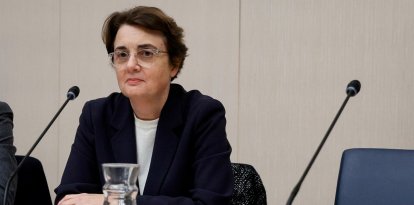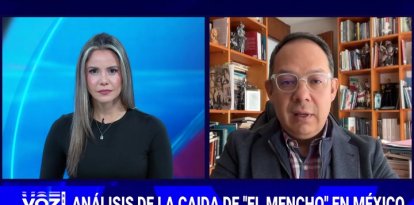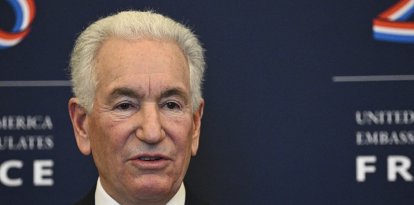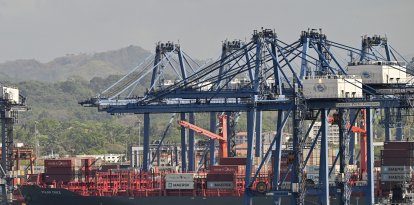The pandemic agreement that the WHO wants to use to govern the world
On Feb. 16, the countries of America met to talk about the progress of the pact, which is expected to be approved in May of this year.

Cordon Press
The future pandemic accord being discussed by the World Health Organization (WHO) would be its tool to govern the world with the excuse of preparing for a supposed health crisis. It is an attempt by the WHO to control the health of people around the world. And, in addition to preparing at least 300 amendments to the International Health Regulations of 2005 (IHR), the draft of the WHO's international agreement on pandemic prevention, preparedness and response is already being discussed.
These talks are gaining strong momentum. On Feb. 16, Pan American Health Organization (PAHO), a subsidiary of the WHO, met to talk about the progress of the agreement that is expected to be approved in May of this year.
"The process to draft and negotiate a new accord is led by World Health Organization (WHO) Member States and seeks to strengthen preparedness and response to future pandemics through an instrument that will foster greater global collaboration and political commitment," said the WHO in a statement.
In this sense, the WHO explained that "Member States of the World Health Organization have agreed to a global process to draft and negotiate a convention, agreement or other international instrument under the Constitution of the World Health Organization to strengthen pandemic prevention, preparedness and response."
With the proposal, the organization aims to oversee the whole world. It would establishes collaboration between all sectors to monitor health risks:
Promoting control of information
But this control goes even further. Each state that signs the treaty also commits that at least every five years it will support "the conduct of, inter alia, appropriate simulation or tabletop exercises, and intra- and after-action reviews, based on the relevant tools and guidelines developed by WHO in partnership with relevant organizations."
Likewise, it will establish, within a period of two years from when the accord takes effect, "no-fault vaccine injury compensation mechanism(s), with the aim of promoting access to financial remedy for individuals experiencing serious adverse events resulting from a pandemic vaccine, as well as more generally promoting pandemic vaccine acceptance."
It will also be the opportunity to create new positions in the organization. It will establish the subsidiary bodies that it "deems necessary" to carry out its work in the terms and modalities defined by the conference of member countries. "Such subsidiary bodies may include, without limitation, an Implementation and Compliance Committee, a panel of experts to provide scientific advice and a WHO PABS System Expert Advisory Group."
Within this control structure is something that is essential for progressives: the control of information. For this reason, the agreement ensures that states will promote "evidence-based communication tools, strategies and partnerships relating to pandemic prevention, preparedness and response, including infodemic management, at local, national, regional and international levels."
The WHO describes an "infodemic" as information that, in its opinion, "causes confusion and risk-taking behaviours that can harm health. It also leads to mistrust in health authorities and undermines public health and social measures."
Who is funding this?
Obviously, for all these plans to be executed, funds will be needed. But that is something that the agreement also resolves, saying that each member state "plan and provide adequate financial support, in line with national fiscal capacities, for: (i) strengthening and sustaining capacities for pandemic prevention, preparedness and response; (ii) implementing national plans, programmes and priorities; and (iii) strengthening health systems and the progressive realization of universal health coverage for pandemic prevention, preparedness and response."
Are they preparing the world for another pandemic?
The approval of the agreement in May 2024 will coincide with the WHO's alarms about the possible arrival of a new pandemic. For example, on Feb. 12, during the World Government Summit in Dubai, WHO President Tedros Adhanom Ghebreyesus insisted again that the world must prepare to face another global health crisis similar to the one generated by the arrival of COVID-19 in 2020.
Ghebreyesus maintained that six years ago he warned at that same summit that the world was not prepared for a pandemic and that, less than two years later, in December 2019, the emergency occurred due to the arrival of COVID-19.
"Although some progress has been made, like improvements in surveillance, the Pandemic Fund, building capacities in vaccine production and the periodic review we have started, still, the world is not prepared for a pandemic," Ghebreyesus said in the message he delivered at the summit.
The WHO president emphasized that there will be a next time. "History teaches us that the next pandemic is a matter of when, not if," he said.
"It may be caused by an influenza virus, or a new coronavirus, or it may be caused by a new pathogen we don’t even know about yet – what we call Disease X. ... And as things stand, the world remains unprepared for the next Disease X, and the next pandemic. If it struck tomorrow, we would face many of the same problems we faced with COVID-19," Ghebreyesus added.
Ghebreyesus's warning adds to several he has made in recent months. During the World Economic Forum, also held in January, he stressed that governments must prepare for the arrival of another global health crisis. Additionally, the forum held a debate to address Disease X.
"The time to prepare for the next pandemic is now, not when it arrives," said Adhanom Ghebreyesus on X after participating in the panel of experts who addressed the importance of preparing to face Disease X, where he was accompanied by Michel Demaré, president of the board of directors of AstraZeneca, and Nisia Trindade Lima, Brazilian minister of health.

























